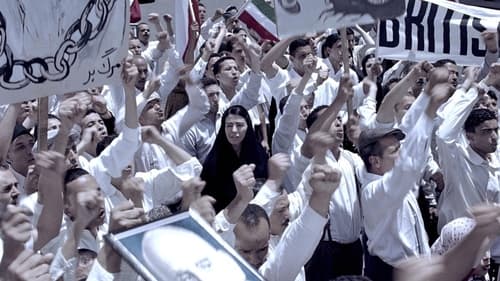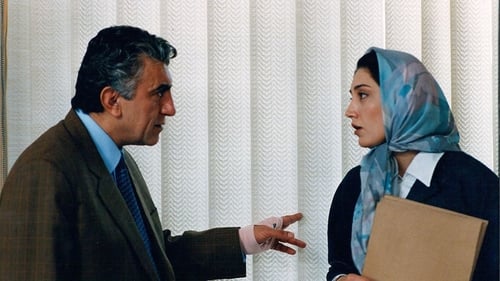
Sare/Leyla
“37 years after her daughter Mitra was executed in Iran and she fled her home country, Haleh leads a successful life as a renowned academic in the Netherlands. Her peaceful existence is shaken by the arrival of a woman she believes may be the traitor responsible for Mitra’s death.”

A politically complacent middle-aged man and a young pro-democracy activist debate about the future of their country while hiding from the police, in this fascinating drama that blends scripted scenes with on-the-ground footage from Iran’s 2009 Green Revolution.

Munis
En 1953, el gobierno británico -con la ayuda del americano- decide intervenir en Irán para derrocar a Mohammed Mossadegh e instaurar la dictadura del Sha de Persia. En medio del caos que supone el golpe de Estado, cuatro mujeres se conocen y encuentran refugio en el jardín de una casa de campo. El sentimiento de amistad y solidaridad que nace entre ellas les ayudará a afrontar sus dramáticas vidas. Adaptación de la novela homónima de la escritora iraní Shahrnush Parsipur. Además de retratar el papel de la mujer, analiza la compleja realidad de la sociedad iraní de la época y subraya el valor simbólico del jardín en la tradición islámica.

Secretary
Director Bahman Farmanara's second film following a 20-year exile from his native Iran depicts the spiritual crisis of a middle-aged man. In the film's dreamlike opening scene, Dr. Reza Sepidbakht (Reza Kianian), a well-off Tehran gynecologist, thinks he runs over an angel while driving home at night with a call girl. The next morning at the hospital where he works, he is shown a comatose boy who is famous for having memorized the entire Koran. These two events cause him to rethink his cynical outlook on life and his relationships with his elderly father, wayward son, and the women he has mistreated since becoming estranged from his wife. When the boy awakens from his coma, Dr. Sepidbakht begins to look to him for answers.

Ahoo
Narra, a través de tres historias, la situación de la mujer iraní

A girl has heart disease and looks for a heart transplant.

Costumer
Tahirih Qurrat al-Ayn was first Iranian women right activist, Bab-i fighter ,theologian,poet. Tahirih was a woman of letters who lived in the nineteenth-century. Her name is synonymous with the emancipation of women and social justice and her life has inspired generations of women ever since, particularly Iranian women’s right movements.Since 1979, the Islamic Republic of Iran forbids any literature or discourse that portrays Tahirih in a positive light. Her name has been removed from the latest editions of history books published in Iran.

Author
Tahirih Qurrat al-Ayn was first Iranian women right activist, Bab-i fighter ,theologian,poet. Tahirih was a woman of letters who lived in the nineteenth-century. Her name is synonymous with the emancipation of women and social justice and her life has inspired generations of women ever since, particularly Iranian women’s right movements.Since 1979, the Islamic Republic of Iran forbids any literature or discourse that portrays Tahirih in a positive light. Her name has been removed from the latest editions of history books published in Iran.

Director
Tahirih Qurrat al-Ayn was first Iranian women right activist, Bab-i fighter ,theologian,poet. Tahirih was a woman of letters who lived in the nineteenth-century. Her name is synonymous with the emancipation of women and social justice and her life has inspired generations of women ever since, particularly Iranian women’s right movements.Since 1979, the Islamic Republic of Iran forbids any literature or discourse that portrays Tahirih in a positive light. Her name has been removed from the latest editions of history books published in Iran.






